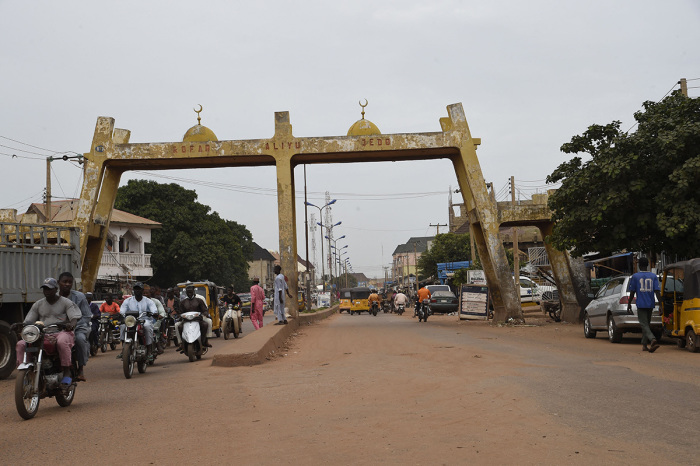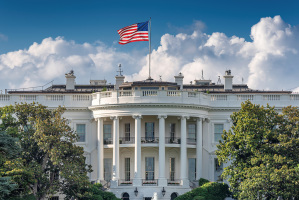Nigerian musician's death sentence appeal to Supreme Court could overturn blasphemy law

A Nigerian Sufi musician facing the death penalty for a blasphemy charge has filed an appeal with the country’s Supreme Court, according to a human rights group that says the case has the potential to overturn Sharia-based blasphemy laws in Northern Nigeria.
Yahaya Sharif-Aminu, who was convicted of blasphemy in 2020 for sharing audio messages deemed blasphemous toward the Islamic prophet Muhammed, has filed an appeal that challenges the constitutionality of the blasphemy law of Kano State and has the potential to overturn such laws in Northern Nigeria, the human rights group ADF International, which is supporting the case, said Monday.
“As a country with immense influence throughout Africa and the Muslim world, Nigeria has an unprecedented opportunity to lead the way toward abolishing draconian blasphemy laws that continue to plague minorities around the globe,” said Kelsey Zorzi, director of advocacy for Global Religious Freedom for ADF International.
Sufism, a mystical form of Islam that emphasizes the inward search for God and shuns materialism, is a minority faith in Nigeria. However, people from the Sufi faith are often persecuted in Muslim-majority countries and regions.
Yahaya was convicted without a lawyer and sentenced to death on Aug. 10, 2020, by the Hausawa Filin Hockey upper-Sharia court. The conviction was overturned due to procedural irregularities, and a new trial was ordered last January.
The musician appealed the retrial order, arguing that the case should be dismissed entirely and the blasphemy law be ruled unconstitutional. In August, a Court of Appeal upheld the constitutionality of the blasphemy law and affirmed the retrial order.
Yahaya remains in jail without bail while awaiting the retrial, where he still faces a potential death penalty, said ADF International, a division of the religious liberty advocacy organization Alliance Defending Freedom. It added that in a country of more than 200 million, split nearly evenly between Christians and Muslims, blasphemy laws are a significant driver of societal tensions.
Yahaya has been detained since March 1, 2020, according to the U.S. Commission on International Religious Freedom.
Blasphemy laws punish the innocent for expressing their beliefs, silence people from sharing their faith, and perpetuate societal violence, ADF International said.
Kano State’s blasphemy law, codified at section 382(b) of the Sharia Penal Code, inflicts severe harm only on minority Muslims but also on Christian converts and others.
In May, a 25-year-old Christian student in Nigeria’s Sokoto State, Deborah Emmanuel, was beaten to death and her body burned after her Muslim classmates purportedly found a blasphemous message she had sent to a school WhatsApp group, according to the U.S.-based group International Christian Concern.
A video of the mob attack on Emmanuel, who was a member of the Evangelical Church Winning All and a student at the Shehu Shagari College of Education, went viral on social media.
The video shows her lying still on the ground as she tried to protect her head with her left arm as male and female students gathered around, beating her with sticks, throwing large stones, and shouting, “Allahu Akbar,” or “Allah is greater.” She pleaded with her classmates not to kill her.
“The justice system in Nigeria should be protecting people who express their faith peacefully, not punishing them with death,” said legal counsel Sean Nelson of Global Religious Freedom for ADF International.
Nigeria’s Christians are routinely targeted, kidnapped and even killed by Islamic militants, including radical Islamic Fulani herdsmen and terror groups Boko Haram and the Islamic State West Africa Province.
In September, an international coalition of 35 religious freedom advocates and 33 organizations from across the political spectrum called on the U.S. State Department to redesignate Nigeria as a “country of particular concern” — a designation signifying governments that have "engaged in or tolerated particularly severe violations of religious freedom — and appoint a special envoy to evaluate Christian persecution in the West African country.
In 2021, ICC designated Nigeria as one of the world's top “Persecutors of the Year” for its savage treatment of Christians.
“Nigeria is one of the deadliest places on Earth for Christians, as 50,000 to 70,000 have been killed since 2000,” the ICC Persecutor of the Year report stated.
Open Doors USA, which monitors persecution in over 60 countries, reported that at least 4,650 Christians were killed between Oct. 1, 2020, and Sept. 30, 2021. That is an increase from 3,530 the previous year. Additionally, more than 2,500 Christians were kidnapped, up from 990 a year earlier.





























